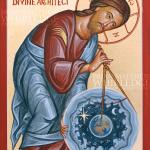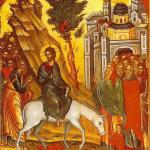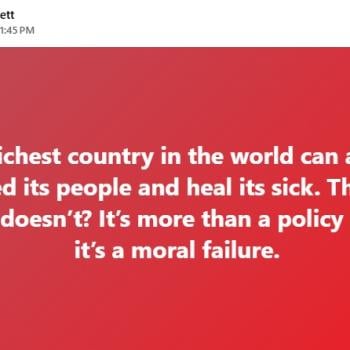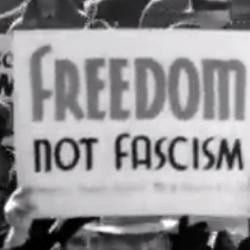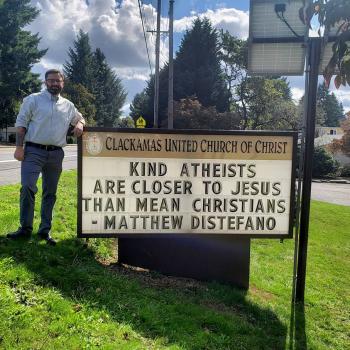Right now, with the cross being used as a political weapon in the United States and other countries where the threat of fascism is growing, I just can’t wear a cross for the time being. So I at least temporarily switched out my cross for a Chi-Ro symbol combined with Mary. Our youngest son, who is a Church history buff in some ways, reminded me of the pre-Constantinian Christianity before it jumped in bed with Emperor Constantine, like parts of American Christianity have jumped in bed with Donald Trump and the right-wing of the Republican party.
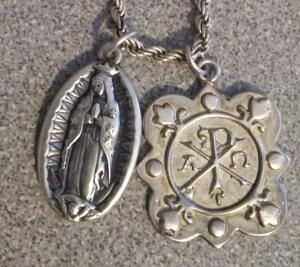
Prior to 313 AD, this was a time of REAL Christian persecution where Christianity was illegal and underground mostly, not the Americanized whining of “Persecution” that we see now. The earliest Christians didn’t discriminate who was worthy of God’s love and care from the Church and who they thought “were not.” They certainly didn’t use their faith to “bulldoze,” and “force others to convert.” They gave to marginalized people unconditionally. They did indeed care for the widows, orphans, the poor, and who Jesus called “The Least of These.” According to several Church historians, such as John Boswell of Yale, the earliest Christians even took care of minority populations like eunics and sexual minorities. They didn’t cast them out and condemn them for “being differently created in God’s image.” Prior to fifth century, the Doctrine of Hell was not formally established. Christians in the pre-Constantine era mostly believed in the Jewish afterlife which included a temporary period of refinement, not an everlasting hell. Since most of the earliest Christian converts were Jewish, this makes sense today.
National Geographic gives a good history of “The Doctrine of Hell” here. https://www.nationalgeographic.com/culture/article/160513-theology-hell-history-christianity
The Eucharist was celebrated but not every Sunday. Some Church historians say that reception of the Eucharist was only practiced one time per-year with confession prior. It was not used as a weapon while only three offenses barred or excommunicated a Christian from it: adulatory (actually cheating on spouse), murder (killing someone with intent to harm), and true idolatry (worshipping pagan gods and the likes). Of course the early Christians knew the Ten Commandments by heart. Today, Pope Francis says that the Eucharist is not a prize for the perfect but a powerful medicine and nourishment for the weak. That would be me.
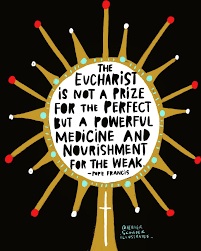
The early Christians did not win or convert people over by brute force but by acting as humble examples through caring for the poor, living holy lives, and actually displaying the virtues of Christianity to “love thy neighbor as thyself.” As a result, they turned Rome upside down, and Emperor Constantine made Christianity the official religion of the land in 313 AD. This of course started the first “unholy marriage” between the Christian Church and State.
Now today in our post-modern world, many articles, books, and other publications are being written about The Age of Deconstruction. Deconstruction and examining my faith have been absolutely essential to surviving the current melded explosion of the Church and State. For the Catholic, doctrine cannot be discarded, but it can be applied in healthier and life-giving ways. This is why I am now heavily leaning on all tenets of Catholic Social Teaching, especially the Sanctity of Life and the Dignity of the Human Person. This is why I am leaning on the love of early Christianity. From what we know about the earliest Christians, they gave life and honored the marginalized unconditionally.
https://www.usccb.org/beliefs-and-teachings/what-we-believe/catholic-social-teaching/seven-themes-of-catholic-social-teaching


